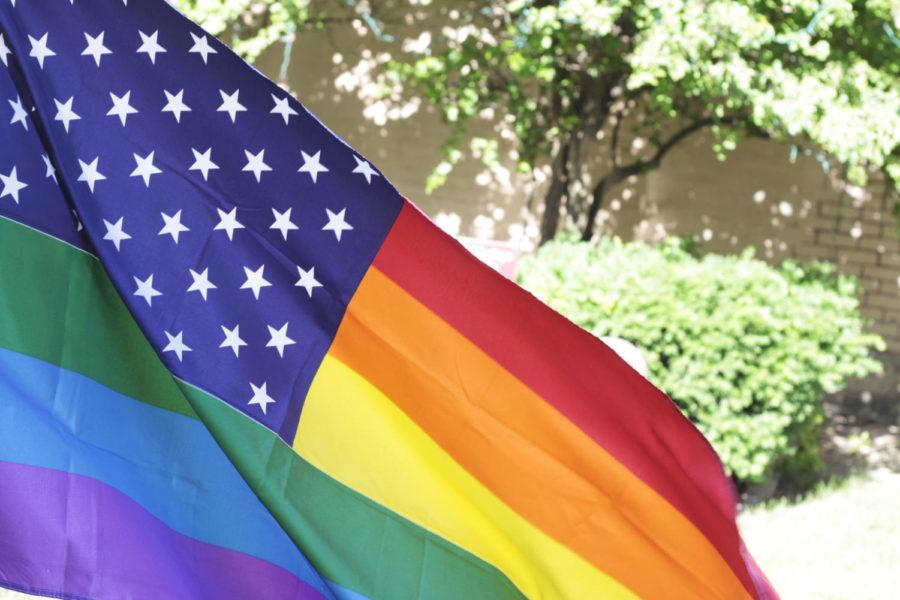Editorial: DOMA ruling just the first step
The rainbow flag was flown in honor of the LGBT movement as the Defense of Marriage Act was overturned June 26, 2013, after the Supreme Court declared that it was unconstitutional.
June 28, 2013
In one of the many stirring decisions made by the United States Supreme Court this past week, the 1996 Defense of Marriage Act (DOMA) was struck down. The law, instituted by President Bill Clinton more than a decade ago, defined marriage in federal law to be exclusively between a man and a woman.
What this meant was even in states where state legislature allowed same-sex marriages, the marriages were not recognized on a federal level and participants did not receive the federal tax benefits that accompany heterosexual marriage.
Additionally, if a gay couple was married in Iowa, where same-sex marriage is legal, and they moved to a state where it was not (say, Texas), their marriage was invalidated.
With the overturn of DOMA, much of this is now changed. Now, Congress essentially does not have a say in the legality of same-sex marriages.
“To find DOMA unconstitutional is to say that Congress cannot legislate those marriage rights … Congress cannot intervene to deny those [federal] benefits,” said Dirk Deam, senior political science lecturer at Iowa State University.
Unarguably, this is an enormous step forward in gay rights and marriage equality. States that have legalized same-sex marriages such as Iowa (and now California with the dismissal of the Proposition 8 case) have federal recognition of the marriages conducted there.
However, this isn’t the final step in equality. We may celebrate, but the fact remains that there is more sweat to be shed. With a strong conservative presence in the US Supreme Court as well as Congress, groundbreaking judicial decisions and constitutional reinterpretations will be few and far between.
So, what is the next step?
Currently, one of the reasons that there is debate about gay rights and marriage laws at all is that no one is sure how to classify gays. Some minority groups such as African Americans or Hispanics fall into the category of “suspect class,” meaning that they have historically been discriminated against. Cases that involve those who fall into this classification are examined with closer scrutiny by courts when unconstitutional discrimination is alleged.
If homosexuality or sexual preference becomes a suspect class, then cases of perceived discrimination against gays or lesbians would be inspected more carefully by courts of every level. At this time, it is pretty safe to say that gays have been historically discriminated against, and should get the same protection against discrimination as do other minorities.
Based on the Supreme Court’s decision to overturn DOMA as well as Justice Anthony Kennedy’s statements, suspect classification for gays may be in the foreseeable future. Kennedy, the Supreme Court justice who wrote the decision on DOMA, made strong statements concerning the basis for the law’s overturn.
“The Constitution’s guarantee of equality ‘must at the very least mean that a bare congressional desire to harm a politically unpopular group cannot’ justify disparate treatment of that group,” said Kennedy in his ruling.
Defining gays as “politically unpopular” is as close to suspect classification talk as we have so far heard from the Supreme Court.
Kennedy also said in his ruling, “The avowed purpose and practical effect of the [DOMA] law here in question are to impose a disadvantage, a separate status, and so a stigma upon all who enter into same-sex marriages…”
The fight for gay rights and marriage equality is not over. Through each tiny advancement, such as this recent court ruling, we get closer to achieving the equality and fairness that we as a nation stand for. Pushing for gays to become a suspect class can open the door for future baby steps in federal law.

















